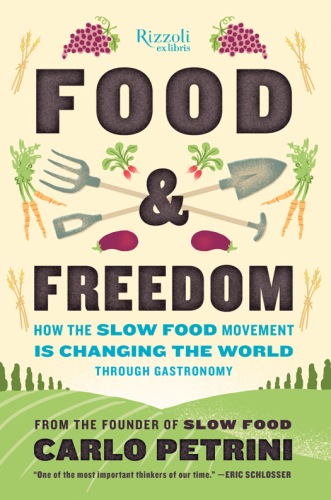
Food & Freedom
How the Slow Food Movement Is Changing the World Through Gastronomy
کتاب های مرتبط
- اطلاعات
- نقد و بررسی
- دیدگاه کاربران
نقد و بررسی

January 25, 2016
Petrini, author of the previous nonfiction book Slow Food Nation, which introduced readers to the "slow food" movement, returns with his follow up, covering "the gastronomy âof liberation'"âhow the movement has evolved and its potential to change the way we produce and eat our food. Petrini's philosophical tome takes on ideas about biodiversity in a globalized world, offering a mini-manifesto, "The Ark of Taste to Save the Universe of Flavors." He somewhat dryly offers a scientific stance on furthering the Slow Food movement as well as a practical one (promoting scientific training of experts, reintroducing "endangered" products, encouraging use of these products in signature dishes.) Though Petrini makes efforts to break the stereotype of the gastronome as elitist, the writing and tone on occasion fall into the trap of perpetuating it: "In 1998, I made a very interesting trip to New York City, where I was taken on a tour of its gastronomic wonders ⦠I was welcomed as a guest in luxury apartments and converted lofts." Such writing creates an image of Petrini as removed from the "empathy with indigenous peoples" that is one of the principles of the Slow Food movement. However, the heart of the project is in the right place, working to raise awareness of the ways we can transcend a system in which food has "Lost all its complex values and become a commodity" and fighting to change this through eco-gastronomy.

























دیدگاه کاربران